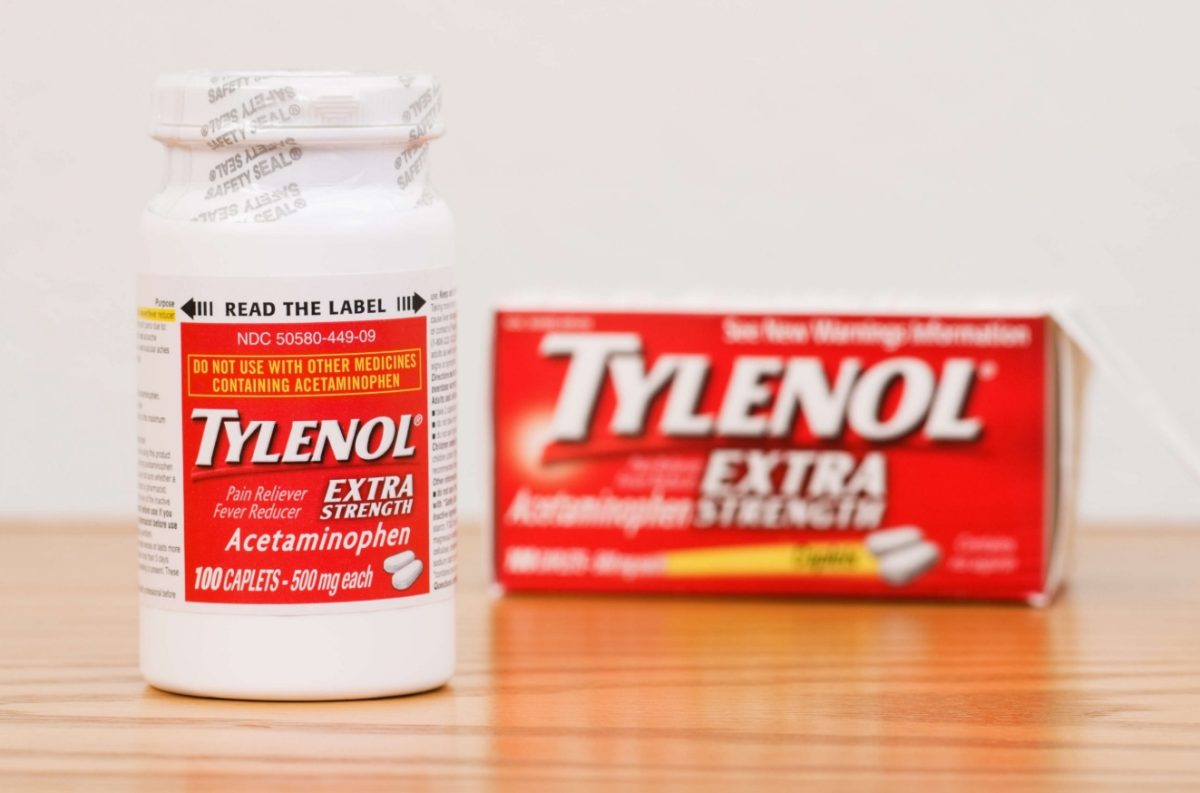October 3, 2025/Midnight
Erie, PA. — In a press conference on Sept. 22, President Trump announced a possible link between acetaminophen and autism. The president also mentioned vaccines and a possible cure for autism. During the press conference, President Trump referred to a recent Harvard University research study, which suggests a possible connection between acetaminophen use during pregnancy and autism. Acetaminophen is the generic name for Tylenol but is also a common ingredient in many medications.
President Trump started the conference by stating that the nation’s best medical and healthcare professionals joined him. He also asserted that autism was a “horrible” crisis, and that the crisis would be confronted.
“The meteoric rise in autism is among the most alarming public health developments in history—there’s never been anything like this. Just a few decades ago, one in 10,000 children had autism…” Trump also stated, “…now it’s one in 31, but in some areas it’s much worse than that, if you can believe it.”
The president announced, “[Acetaminophen], which is basically commonly known as Tylenol, during pregnancy can be associated with a very increased risk of autism. So, taking Tylenol is not good—alright, I’ll say it—it’s not good.”
The senior author of the paper the Trump Administration primarily referenced, Andrea Baccarelli explains in a more moderate approach, “Further research is needed to confirm the association and determine causality, but based on existing evidence, I believe that caution about acetaminophen use during pregnancy—especially heavy or prolonged use—is warranted.”
A statement released by the FDA on Sept. 22 reads, “…while an association between acetaminophen and autism has been described in many studies, a causal relationship has not been established and there are contrary studies in the scientific literature.”
The statement also reads, “…clinicians should consider minimizing the use of acetaminophen during pregnancy for routine low-grade fevers. This consideration should also be balanced with the fact that acetaminophen is the safest over-the-counter alternative in pregnancy among all analgesics and antipyretics; aspirin and ibuprofen have well-documented adverse impacts on the fetus.”
In an article published to the White House website, the Trump Administration also referred to a study from John Hopkins University and Mount Sinai, which suggests links of acetaminophen use during pregnancy and autism.
While different studies have shown a possible correlation between acetaminophen and autism, causation has not yet been found. The American Academy of Pediatrics stated, “The AAP supports the American College of Obstetricians and Gynecologists’ (ACOG) studies and research concluding that the occasional use of acetaminophen as directed for fever and pain relief during pregnancy is safe.”
They also asserted that there is no single cause to autism, and that genetic and environmental factors play a role in autism development.
Acetaminophen was not the only drug mentioned during the press conference; leucovorin was mentioned as a possible cure for autism. The Coalition of Autism Scientists state that while some research has connected leucovorin to improvements in autism treatment, the data is largely weak and low quality. They also say that more studies would need to be conducted before any claims should be made connecting leucovorin to autism treatment.
President Trump also commented on vaccines: “They pump so much stuff into those beautiful little babies…” and called it a “disgrace”. He suggested that children receive too many vaccines at once, or at too young an age.
Tylenol as a company is not without a history of scandal and public fear. Famously, in 1982, seven people died after taking Tylenol pills. It was later found that their Tylenol pills were swapped with cyanide. All bottles of Tylenol were quickly pulled from shelves during the investigation, and a nationwide recall was issued. The perpetrator of the crimes was never found, and the case came to be known as the Chicago Tylenol Murders.
Researchers and medical professionals will continue to study acetaminophen, leucovorin, and other possible links to autism. For now, patients are advised to listen to their doctors to determine what medicine is appropriate and safe to take.








